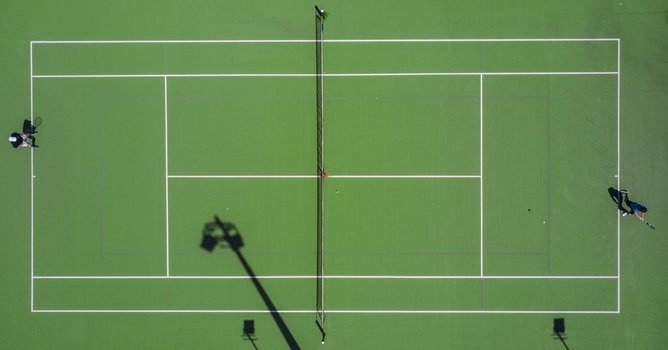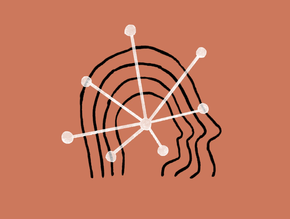AI commentary takes centre stage in Wimbledon

At the fundamental level, sports hinge on competition, engagement, ability and judgement. But what happens when AI is introduced into sports with disruptive potential for every sport we engage in?
In a groundbreaking move that promises to redefine the world of sports broadcasting, the prestigious Wimbledon tournament has announced the integration of AI-powered commentary into its coverage.
Stepping into uncharted territory, AI technology is set to transform the spectator experience, bringing a unique shift to one of tennis's most iconic stages.
As the sports world awaits this event with bated breath, the introduction of AI to Wimbledon sets a new benchmark for innovation in sports, and sports journalism.

Introducing AI into sports commentary
Wimbledon's adoption of AI-powered commentary marks a significant milestone in the convergence of advanced technology and traditional sports coverage.
Leveraging cutting-edge AI algorithms, this pioneering venture aims to transform the way viewers engage with the event.
The integration of AI promises to deliver real-time analysis, insightful statistics, and a captivating narrative that captures the essence of each match, all while enriching the overall spectator experience.
While AI-powered commentary is poised to take centre stage at Wimbledon, the pivotal role of human experts cannot be undermined.
Beyond its primary goal of delivering technologised commentary, AI technology at Wimbledon also enhances viewer engagement in unprecedented ways.
Spectators will have access to real-time match statistics, player profiles and historical data.
The ethics of AI sports broadcasting
Wimbledon's foray into AI-powered commentary signifies a watershed moment for the future of sports broadcasting.
This bold move sets the stage for further exploration of AI applications in various facets of sports coverage, from live analysis to immersive virtual reality experiences.
While the integration of AI in sports commentary brings immense potential, it also raises important ethical considerations.
Wimbledon's commitment to transparency ensures that viewers are aware of when human commentators are speaking or when AI algorithms are providing insights.
Striking the right balance between human judgement and automated analysis is vital to maintaining the integrity and authenticity of the coverage, thereby preserving the spirit of fair play and the human essence of the game.

AI’s impact on sports beyond tennis
AI is revolutionising the sports industry by providing valuable insights and data to athletes, managers, trainers and fans.
Here are some examples of how AI is being used in global sports:
Personalised training programs
AI-powered training programs can provide athletes with personalised feedback and recommendations to improve their performance. Golfers and tennis players have already been using this kind of technology for many years to analyse their swing or serving technique1
Player performance measurement
AI algorithms can analyse vast amounts of data about games, opponents, and players' own performances. This data can be used to identify strengths and weaknesses, develop strategies, and make informed decisions in real-time
Injury prevention
AI can help with injury prevention by tracking player movements and analysing biomechanical data to identify any movements that could lead to injury
Talent identification and acquisition
AI can be used for player recruitment, biomechanics, and player performance measurement
Virtual reality training
AI can be used to create virtual reality environments that can be used for training and player development
Real-time analytics and virtual replays
AI technology is now used in stadiums to generate real-time analytics and virtual replays, provide smart ticketing services, improve crowd management
AI can help athletes, coaches and fans enhance their sports experience, but that’s just one side of the coin. The flip side prevents many bones of contention. It is true that With the help of AI, athletes can receive personalised feedback, coaches can make informed decisions in real-time, and fans can enjoy a more immersive experience - but what is to be said for natural performance? Isn’t this what sports are all about?
One thing is for certain. AI is transforming the sports industry and is expected to influence almost every aspect of it, as well as the industries tied to it, and the people that it's a representation of.






